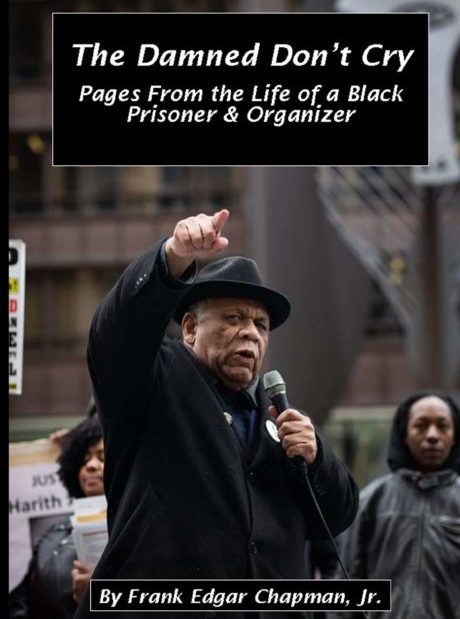“The Damned Don’t Cry: Pages from the Life of a Black Prisoner and Organizer” by Frank Edgar Chapman Jr.
Champion for prisoners’ rights Frank Edgar Chapman Jr. penned a detailed autobiography. From child hustler, to inmate, to community organizer, Chapman’s distinct literary voice leads the reader through a life where hope is always present. A reader can count on one hand the life experiences where Chapman isn’t goal focused despite oppressive circumstances. Even as a child, he always seemed to know what he wanted from each situation.
Chapman is clear about the advantages that surfaced in his childhood: a wealthy aunt and a social worker who exposed him to an education beyond his family’s means. Despite these positive influences, young Chapman’s street disposition emerged to his detriment. Wanting to be like his father (senior Chapman had a street hustler’s reputation) and having some limited success on the streets, he would run away from respectable life to mimic that style of life. Chapman extends his explanation for his youthful lifestyle also giving social-economic reasons: “The judges, prosecutors, police and indeed all official society were there to keep me from getting out of the impoverished hell they had me and my people in. I saw no way out within the rules and regulation they had set up for me to follow. How can wanting money be evil if you are poor?” As a hustler, the want for money was met at the expense of others and not from working a legitimate job, and this attitude led to Chapman being an inmate.
The 12 years Chapman lived inside a prison transformed him: he grew from a music lover to a musician and composer, from a self-educated historian to a degreed scholar, and from a self-centered hustler to a prison organizer. Chapman’s love of history, philosophy, and politics is discussed throughout the work. Reading and studying books on these topics developed political and philosophical thought within Chapman, “I started seeing the relationship between government and politics.” And this acquired sight would not allow Chapman solace in the face of injustice. While being held prisoner, his goal-driven personality was obvious in his organized political actions. He was beaten to near death, but he remained focused on the end goal; making life better for all those imprisoned.
Once Chapman, an educated, respected, and established prison organizer was paroled, his political actions reached into communities. With great adherence to details and dates, Chapman chronicles his history as a political organizer in America. As a true historian, he gives the readers facts and outcomes of the actions. The battles appear continuous and never ending, but Chapman’s hope prevails, and he continues to reject the message he saw engraved in the stone of his first prison, “All who enter here leave all hope behind.” Chapman’s reply, “I wasn’t going to follow that suggestion, I could not leave all hope behind.”




